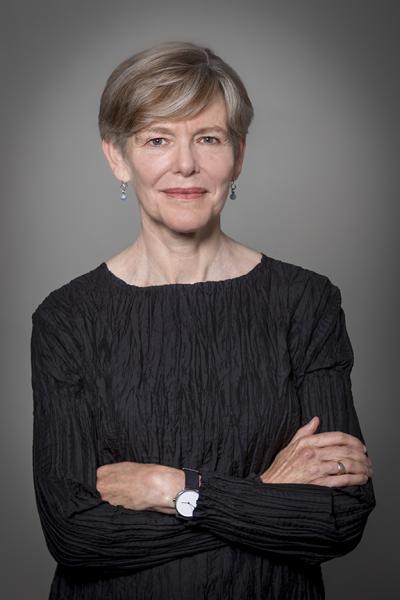Through national and international collaboration, Building democracy and justice after conflict sought to develop not only innovative theoretical models to ground international norms about governance and justice after conflict, but also practical proposals to implement them.
The specific aims of the project are to:
- identify and analyse the elements of the current international legal framework regulating governance and the protection of human rights in post-conflict states
- assess the effect of attempts to promote democracy and human rights in a series of case studies
- develop new theoretical models for understanding the impact of international law after conflict
- elaborate proposals for strengthening the international legal basis of democratic governance and human rights structures.
Questions being addressed in this project include: Can an international definition of democratic governance be devised? Should there be a ‘two track’ conception of governance: a minimalist one for unstable states and a substantive one for more secure societies? Can democracy be imposed in an undemocratic way? Is transitional justice a matter of international or purely local concern? Are international legal norms likely to be of value in societies dealing with the aftermath of conflict?
This research project has also paid attention to questions of sex and gender in the definition and treatment of ‘outsider’ states in international law and the lives of their inhabitants.
This project has been funded through Hilary Charlesworth’s ARC Federation Fellowship (2005-2010) and an ARC Discovery Grant.
Overview of project findings
The project, particularly through the creation of the Centre for International Governance and Justice, fostered innovative research on the role of international law in providing democratic governance and accountability for past injustices in societies affected by conflict. It ran a very successful visitor and seminar program, as well as a film series. It produced a series of publications assessing the effect of attempts to promote democracy and human rights after conflict, whose findings included:
1. The role of international law: Competing legal frameworks can interact unpredictably after conflict. While international law has shaped domestic developments in some post-conflict societies, it provides another confusing layer for outsiders and local authorities to navigate in searching for appropriate legal standards. International law may empower local actors to exercise their rights. However, it may also have unanticipated consequences on local systems of justice. For instance, it might undermine human rights by promoting standards it cannot possibly safeguard.
2. Defining democracy: International institutions have offered a variety of definitions of democracy, most of which draw heavily on the Western tradition, rendering them unsatisfactory to groups emerging from conflict. A preferable approach may be an account of democracy based on popular control over public decisions and decision-makers, and equality of respect and voice between citizens in the exercise of that control. Democracy promotion is a long haul enterprise, often requiring decades of integration.
3. Engagement with local concerns: Democracy and justice-building projects are rarely considered from the perspective of those most affected by them. The engagement of local populations in the democracy-building process requires a basis of knowledge about indigenous political concepts, traditional legal structures and pre-existing power structures. There is a need to understand the different ways in which post-conflict environments are lived and experienced by affected groups.
4. Participation of women in peacebuilding: war and peace have multiple and contradictory effects on women; women can be involved in peace, but equally can be instrumental in conflict. Legal efforts to rebuild societies after conflict achieve the best outcomes for women when they are driven by women’s direct participation in peacebuilding and respond to women’s demands for social transformation. External interveners should therefore move towards a ‘gendered security’ approach, which would empower women to participate in, and indeed drive, the process of transforming their post-conflict societies.
5. The rule of law: We propose an extension of the rule of law in international post-conflict settings to include economic, social and cultural rights as well as civil and political rights. The rule of law is best understood not as a monolithic concept, but rather as a system of values; these include goals of accountability, stability, efficiency and human rights protection, which may regularly be in tension with each other in particular contexts. Recognising the politics of the rule of law may reduce its technological appeal to international post-conflict peacebuilders, but increase its value to local populations. Accountability is also an important dimension of the rule of law: those who seek to promote the ruleå of law should be seen to adhere to it. Thus legal frameworks should be developed and refined to ensure that external interveners in post-conflict environments themselves accept and act upon their responsibility to avoid perpetrating human rights violations.
6.Transitional justice: It is neither helpful nor accurate to frame the post-conflict imperatives of ‘justice’, ‘peace’ and ‘truth’, in stark, simplistic terms as competing and mutually exclusive. There are an increasing number of situations where a suite of supposedly contradictory transitional justice mechanisms have been employed at the same time. Black-and-white caricatures of the imperatives of transitional justice overplay the differences, and underplay the synergies, between approaches that might seek to promote multiple combinations of truth or justice or peace.
Featured publications and resources
Working papers and issues papers
The objective of this series of working and issues papers, focusing on particular institutions, mechanisms and regions, is to assess the effect of multilateral attempts to promote democracy and human rights in post-conflict situations. We examine how ideas of democracy and human rights have affected these processes so far and with what results.
Books and journal articles resulting from the research in this project.
Hero image by United Nations



